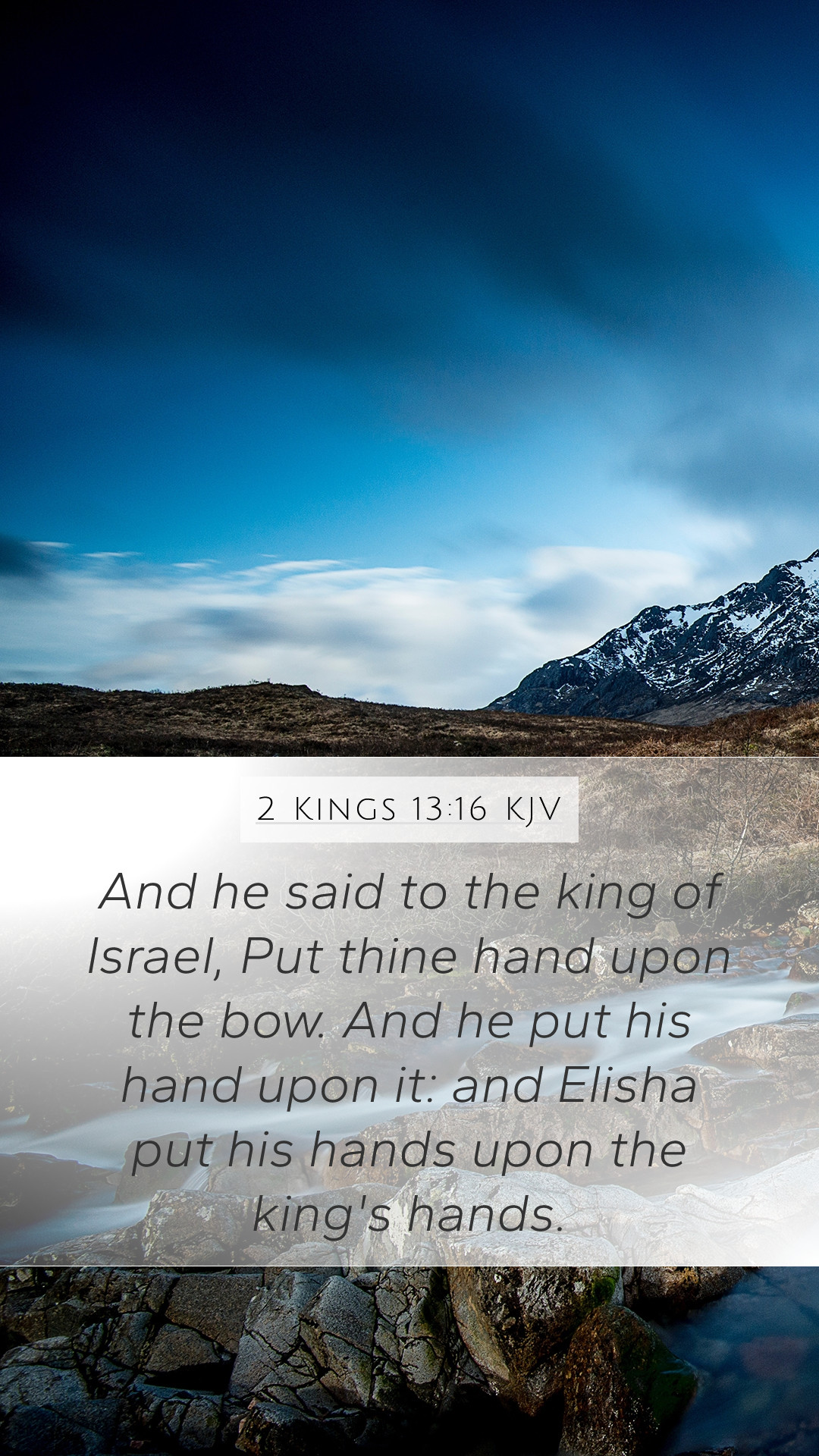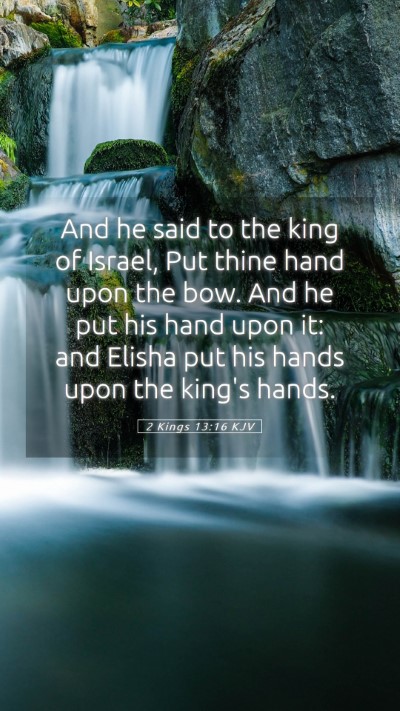Understanding 2 Kings 13:16
Bible Verse: 2 Kings 13:16
Verse Explanation: "And he said to the king of Israel, 'Put your hand upon the bow.' And he put his hand upon it: and Elisha put his hands upon the king's hands."
Summary of Insights
This verse presents a crucial moment during the reign of Joash, king of Israel. It highlights the prophetic ministry of Elisha and the symbolic act of the king taking hold of the bow, representing preparation for battle with divine assistance. The act signifies both the authority of the king and the empowering presence of the prophet, illustrating the interconnected nature of earthly and spiritual authority.
Commentary Insights
-
Matthew Henry's Commentary:
Matthew Henry emphasizes the significance of the physical gesture of placing hands upon the bow. This act signifies that the victory of Israel over its enemies is not by human strength alone, but through divine assistance. The involvement of Elisha illustrates how God's power works through His prophets.
-
Albert Barnes's Notes:
Albert Barnes points out that the bow symbolizes the military strength of Israel and the act of shooting arrows can be interpreted as a sign of God's judgment and deliverance. Barnes indicates that this moment reveals the need for reliance on divine means to achieve victory, emphasizing faith over mere military might.
-
Adam Clarke's Commentary:
Adam Clarke adds depth by discussing the prophetic significance of the gesture. He argues that Elisha's involvement indicates the continuation of God's guidance and power through the prophets. Clarke notes that the physical act also conveys a message of commitment and readiness to confront adversaries, suggesting that faith and action must go hand in hand.
Theological Implications
This verse illustrates key theological themes, including:
- Divine Sovereignty: God directs the affairs of nations and uses His prophets to guide leaders.
- Human Responsibility: The king's action reflects the necessity of human cooperation with God's plans.
- Symbolism of Warfare: The bow and arrows symbolize both spiritual and physical battles, indicating God's active involvement in our struggles.
Applications for Daily Life
For contemporary believers, this verse offers several meaningful applications:
- Faith in Action: Just as Joash was instructed to actively participate in God's plan, believers are called to take steps of faith in their own lives.
- Reliance on God: Understanding that true victory comes from God's power encourages believers to seek divine help in their struggles.
- Prophetic Voice: The importance of listening to godly counsel and prophetic guidance in our lives today remains relevant.
Related Bible Cross References
- 1 Kings 19:16: Reference to the prophetic commissioning.
- 2 Kings 13:14: The relationship between Elisha and Joash.
- Psalm 44:5: Confidence in God's help in battle.
- Isaiah 54:17: Assurance that no weapon formed against you will prosper.
- Ephesians 6:10-17: The armor of God as preparation for spiritual warfare.
Conclusion
In Summary: 2 Kings 13:16 encapsulates the cooperation between divine power and human action. It serves as a reminder that faith, when acted upon, empowers believers to confront their challenges, with the assurance that God is actively involved in their victories.
Further Studies
For deeper understanding, consider exploring Bible study resources such as:
- Bible study guides on the historical context of the kings of Israel.
- Online Bible study tools that facilitate verse-by-verse exegesis.
- Engaging in Bible study groups to discuss the implications of Scripture in community.
- Investigating how Old Testament prophecies relate to New Testament fulfillments.


